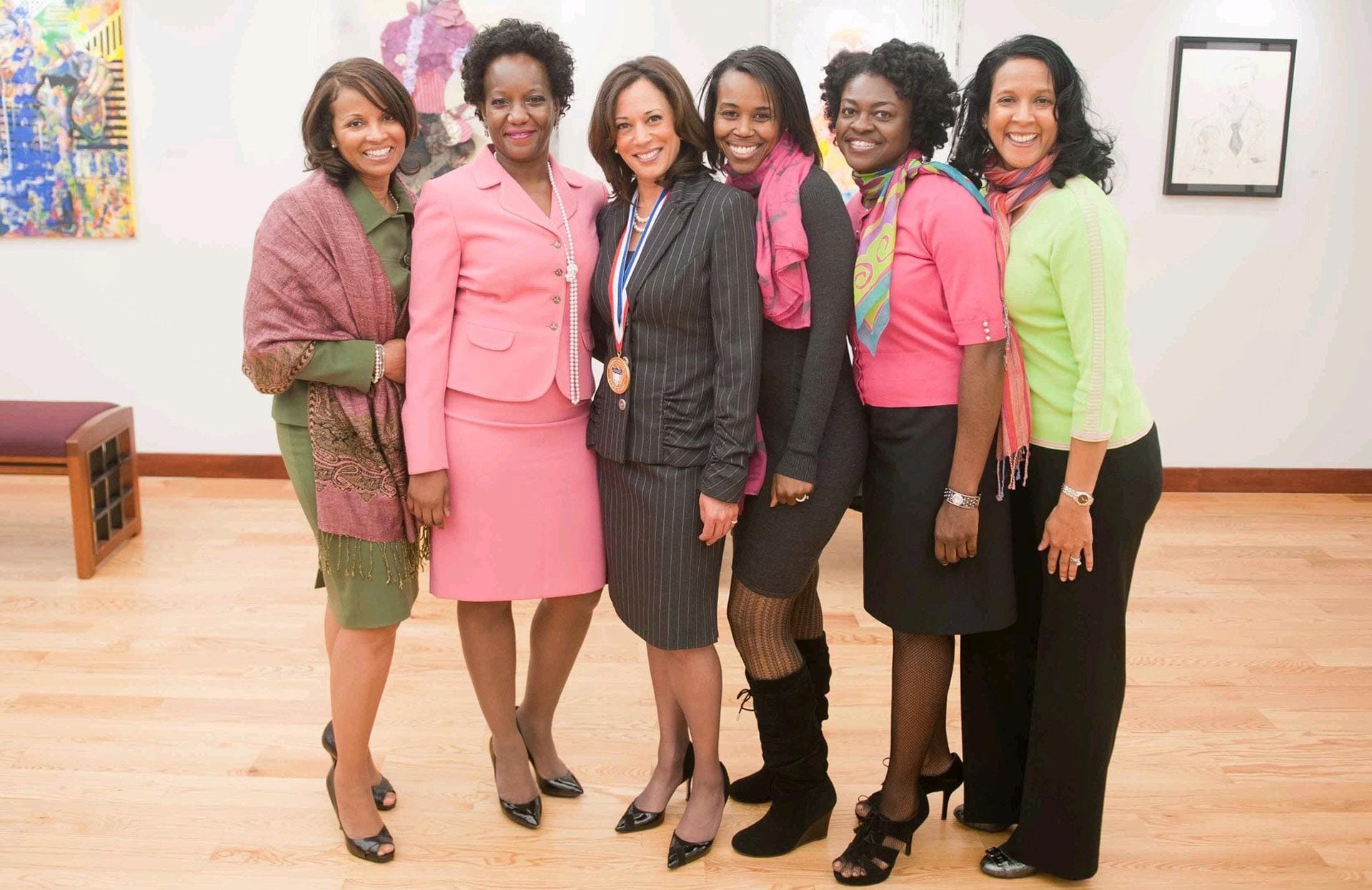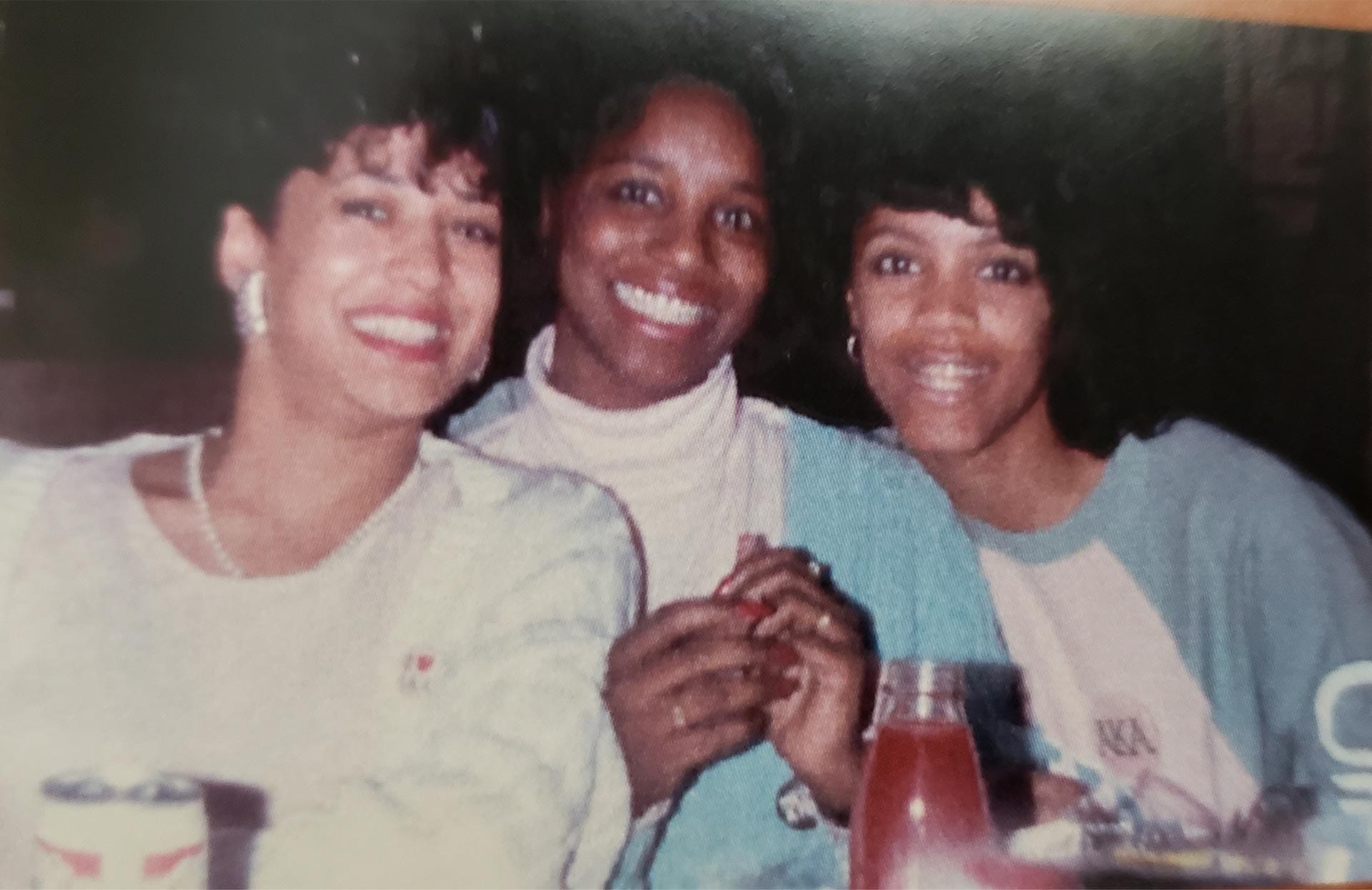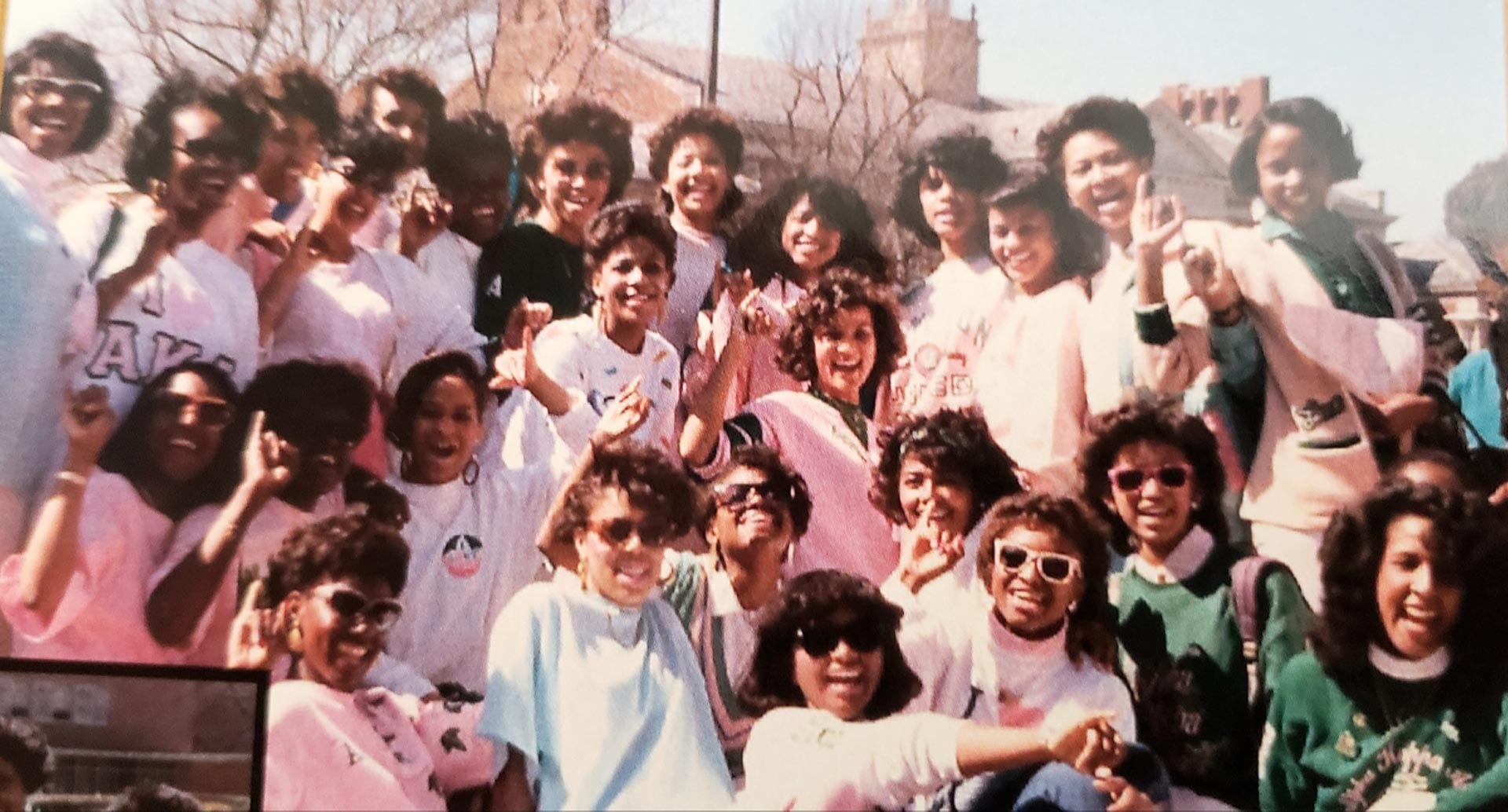Originally published by The 19th
Sen. Kamala Harris announced her bid for president on Martin Luther King Day, the holiday honoring one the world’s most revered leaders. Later that day in January 2019, Harris showed up at her alma mater, Howard University, less than two miles from the White House, the place she was vying to make her home.
“Some people are asking, ‘Why are you bringing everyone together here?’” Harris said on that January day. “It is because Howard University is one of the most important aspects of my life. It is where I ran for my first elected office, which was freshman class representative of the liberal arts student council at Howard University. So, this is where it all began.”
Although Harris ultimately called her presidential campaign quits, citing a lack of funding and dropping out of the most diverse pool of candidates in history, she made history again Wednesday night when she officially accepted the nomination to be the Democratic Party’s vice president, the first woman of color on a major-party ticket.
For the alumni and students enrolled in the hundred or so historically Black colleges and universities, Harris’ ascent to be in contention for one of the highest offices in the land has been something to celebrate. Harris made sure they knew the love is mutual; in her acceptance speech at the Democratic National Convention, she counted her “HBCU brothers and sisters” as her “family.”
Harris’ supporters and critics who are bonded to her by the shared legacy of an HBCU education are weighing what this moment means to them personally, but also the potential it has to raise the profile of HBCUs more broadly.
“This is a moment in history that is empowering for women, especially women of color, and it is an opportunity to give our voice to HBCUs producing the best,” said Inez Brown, 55, who was initiated into Alpha Kappa Alpha Sorority, Inc. at Howard University with Harris in the spring of 1986.
Brown began college at Cornell University, a predominantly White institution, where she says she had a great experience but couldn’t help feeling that something was missing. After a year, she transferred to Howard. Surrounded by so much diversity — more diversity and versatility than you see anywhere else, she said — she felt supported by an institution she felt was committed at its core to her success.

“But even some [Black people], we will sort of look at HBCUs like they are inferior to [predominantly White institutions],” Brown said. “You just have to look at the products that come out of HBCUs and you have to say to yourself, ‘How could people possibly think that way?’”
HBCUs represent just 3 percent of America’s colleges and universities, yet nearly one in five Black people with college degrees have one from these schools. Women have outnumbered men at HBCUs since the 1970s, and these institutions are helping to level the gap in science fields, producing nearly half of all Black women who earned a degree in science, technology, engineering or math from 1995 to 2004.
HBCUs, which were founded primarily after the Civil War to educate formerly enslaved people who were shut out of other higher learning institutions, continue to face their fair share of challenges to secure funding and keep accreditation. Yet they continue to do more with less, graduating more poor Black students than predominantly White schools, and more upwardly mobile Black graduates than their counterparts with much heftier endowments.
These institutions persist as academic powerhouses, producing politicians, physicians and prominent leaders in every field. Graduates are provided a bastion of Blackness before bearing the brunt of bigotry lurking beyond the gates of their campuses.
During their senior year at Howard, Brown and Harris were initiated into Alpha Kappa Alpha. Brown has known Harris longer than she hasn’t, and she said their line (the class of women who joined the sorority together) never hesitates to pick up the phone and rally around each other, or show up to an induction — or, if things work in their favor, a presidential inauguration next year.
“Through it all she has been, to us, our line sister Kamala,” Brown said. “She is so authentic, and that is so inspiring for us because you do not have to pretend, forget from where you come, assimilate into society.”
Alpha Kappa Alpha was founded in 1908 on Howard’s campus as the first sorority for Black women, boasting members such as Toni Morrison, Maya Angelou, Rosa Parks and Coretta Scott King. Brown recognizes this moment as meaningful for many, but it’s not lost on her that Harris, who’s broken so many “firsts” in her career, has done so as the member of the first chapter of the first sorority for Black women.
Through it all she has been, to us, our line sister Kamala.
Inez Brown
“It is really a nod to our founders,” Brown said. “That they were able to establish something so special and so awesome at a time it was not the norm — for Black women to get together to establish a professional organization legally. It wasn’t just a club. It is a history of excellence. ”
Nearly three decades later, Brittany Foxhall, 28, was initiated into Howard’s chapter of Alpha Kappa Alpha, the same one as Harris. And Foxhall also had the experience of the high-stakes student body elections, coming out victorious as student body president.
“That could legitimately one day be me,” Foxhall said of Harris. “It seems surreal. It’s really powerful. I think Howard kids right now are trying to take ownership over this elation right now, but it means so much more. I’m excited to share her, and share this with people who aren’t Howard alums and aren’t a part of AKA.”
The day Biden announced Harris would join his ticket, Foxhall’s group text with her sorority sisters “blew up.” She felt a mix of emotions: She chewed over not being particularly interested in a Joe Biden presidency, and the question of Harris’ record as a prosecutor.
There was Harris’ 2011 truancy policy during her time as California Attorney General — which Harris has since apologized for — and her choice to be involved with law enforcement at all. That’s just politics, Foxhall ultimately reasoned. All of them have done something that could be deemed problematic, she said. It’s not fair to expect Harris to have had a “2020 mindset” 20 years ago.
“I can’t wrap my head around how anything she’s done in her past is even close to the fascism we’re experiencing now,” Foxhall said.
Foxhall watched the Twitter battles over her “big sister,” and became alarmed that there were people who would prefer to not vote at all. Reading the conversations, Foxhall felt a sense of clarity for what her role would be heading into November.

“As a Howard grad, as a soror, and a Black woman, there needs to be an expectation to protect her,” Foxhall said. “I’m not going to allow this to go down. She’s about to clean up a hell of a mess, and that’s going to be a lot.”
Gabrielle Horton, 29, has added her voice to some of the Twitter conversations leveling criticism against Harris. Despite their shared identities as Black women from California who graduated from an HBCU — Horton went to Spelman College in Atlanta — Harris’ nomination gave Horton no sense of excitement. She is tired.
“I think that this election cycle, 2020, the uprisings, the pandemic, the man that we have in the White House, have sucked all of the energy or any bit of joy I think I might have felt before,” she said.
Like Harris, Horton was bitten by the political bug while attending an HBCU. She worked in the late Rep. John Lewis’ office, and after graduating in 2012, she joined then-President Barack Obama’s re-election campaign as a field organizer in North Carolina.
Horton financially supported Julián Castro’s bid for the White House. The country “wasn’t ready” for him, she says, but she was hopeful the progressives like him running for office would plant new ideas and push the party more to the left.
“We need an immediate change, people who are responsible and who can step to the plate to lead,” Horton said. “It doesn’t mean that they’re perfect or that we agree on everything. We have a lot of work to do even with Kamala and Joe in office next year, but that’s an easier push than trying to do anything in this administration.”
When Harris accepted the vice presidential nomination, she credited the younger generation with pushing the country where it needs to go. For Horton, that means holding Harris and Biden accountable for their records on crime and law enforcement. In light of the uprisings in response to police brutality this summer, it’s hard to wrestle with this ticket, but at least they’re taking it seriously, Horton said.
Horton wishes she was having “a feel-good time” with an HBCU grad potentially heading to the highest office. But her complicated feelings mirror the reality of being Black in America, holding many things to be true at once — the joy and the trauma, Horton said. She is prepared to hold Harris accountable, just as she feels she has to do the same for HBCUs that have struggled to find ways to be more inclusive of trans and queer people and survivors of sexual assault.
“A lot of HBCUs, including Spelman and including Howard, respectability politics sometimes trumps how all students experience their time,” Horton said. “In many ways some of the pushing and advocacy people have been doing to make them these fully realized spaces to make sure all Black lives matter … is similar to the work we are doing, or have to do, with this Biden-Harris administration.”
But despite her hangups, Horton still feels a connection to the fellow HBCU graduate.
“There’s some experiences only we understand and have had, and it’s a very special connection and bond,” Horton said. “This is not the last HBCU alum we’re going to see in the White House. We can thank her for opening up that door.”
Bennett College, a historically Black college for women in North Carolina, almost lost its accreditation a year ago. It launched the Stand With Bennett campaign and raised more than $8 million to put toward an accreditation appeal and prove its financial viability.
This year, it has a new president at the helm, Suzanne Walsh, who is leading a fully-virtual school year for now. With the coronavirus impacting people of color disproportionately, she just couldn’t see a way to reopen in person. If there’s a silver lining, the fight for Bennett’s future positioned them to be prepared for lower enrollment, reduction in revenue.
Walsh takes pride in Harris’ achievements “as if we all personally helped her,” she said in an interview.
Walsh has worked with HBCUs through her time at different fundraising foundations, but did not attend an HBCU herself. She hopes that Harris being a product of an HBCU gives more visibility to schools like Bennett, whose students joined the Woolworth sit-ins in 1960 in Greensboro, North Carolina, as part of the fight for integration.
“I hope that people do see HBCUs as part of an incredible part of the past and history and also a vibrant springboard for the future — it really is toggling between those two worlds,” Walsh said.
And Walsh is impressed with Biden too. In the aftermath of the killing of George Floyd, she joined a conference call with Biden and a handful of other HBCU presidents — she was the only woman among them. The presidential candidate asked what issues were on their minds, and Walsh said she riffed on her concerns about Breonna Taylor and the role of Black women out in community, businesses and in the streets. Biden circled back to Walsh’s remarks, calling her madame president, and thanked her for bringing up these issues.
“He had such an appreciation and understanding that I didn’t expect for what the conversations were amongst Black women that, quite frankly, it threw me,” Walsh said. “There’s no grandstanding. This is just a tiny conversation of people, there’s no media, we’re just on a phone.”
Dana Williams, chair of the Department of English at Howard University, pointed out that the Biden-Harris ticket represents the first time a Democratic ticket is without an Ivy League degree since 1984.

At this moment in history, the possibility of having an HBCU graduate in the White House “rejects supremacist notions and mythologies about American exceptionalism” that Ivy League institutions uphold, she said. HBCUs have always been about advancing promise, from Howard Law School alumni Thurgood Marshall arguing Brown v. Board, and using the school’s resources to prepare the case, to their fostering of notable leaders such as Martin Luther King Jr., Oprah Winfrey, NASA scientist Katherine Johnson and W.E.B. DuBois. Their students have never had the luxury of accepting the status quo. It’s why Willams herself made the “political decision” to choose Howard, and be trained by the best scholars of literature — whether others recognize them as such or not.
Williams hopes that even if people can’t rally behind Harris, that they can rally behind Black women, who’ve been so reliable, dependable and consistent in politics. Harris’ nomination is a signal, a dare, to ever ignore them again.
“There are Black people who aren’t excited about her candidacy, but I think ultimately, it’s more important that Black women’s vote-labor has finally been acknowledged as valuable in a leadership position,” Williams said. “Black women have saved the Democratic Party over and over again only to be ignored. …We have reached the point where we have commanded the respect of people that should’ve been respecting us all along.”
Williams is a fellow member of Alpha Kappa Alpha, and has exclusively studied at HBCUs: bachelor’s degree from Grambling State University in Louisiana, master’s and doctorate from Howard. Williams said she doesn’t think she would’ve been any less excited if Harris weren’t her sorority sister, but it added a “personalization factor.”
Williams said that Harris launching her presidential campaign in January 2019 and going straight to Howard University signaled her consciousness of wanting to be perceived as undeniably Black, connected to institutions that produce “social engineers” and change agents.
“She’s so poised,” Williams said. “It’s part prosecutor, but a tremendous part of it is Black-girl confidence that comes out of an HBCU.”
